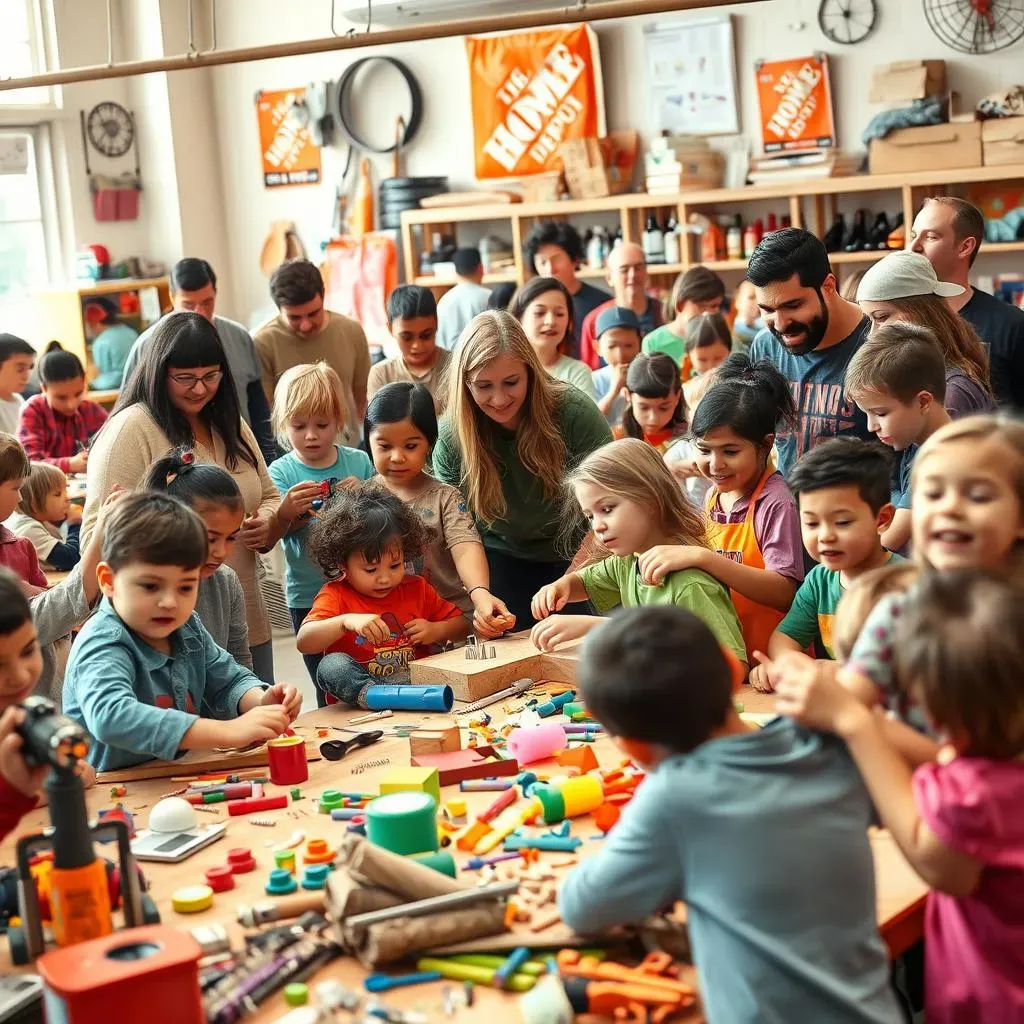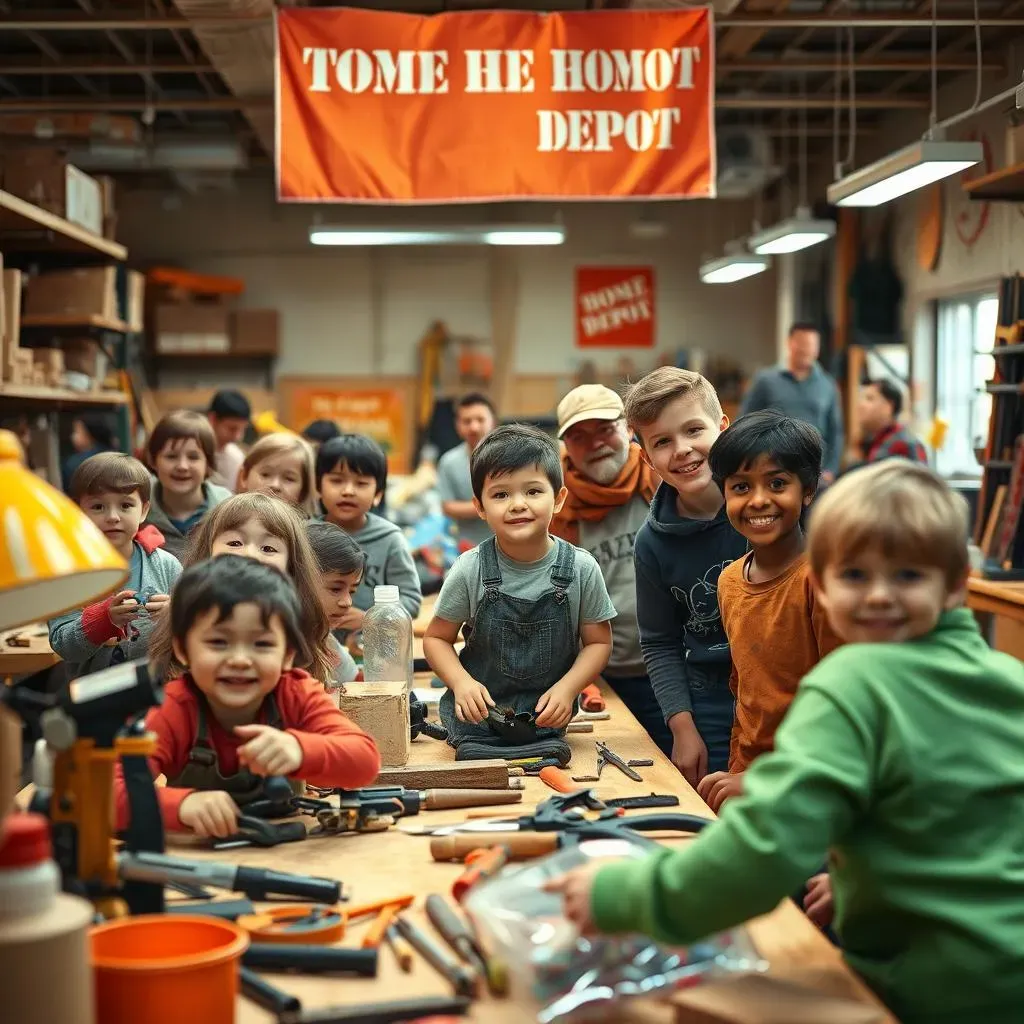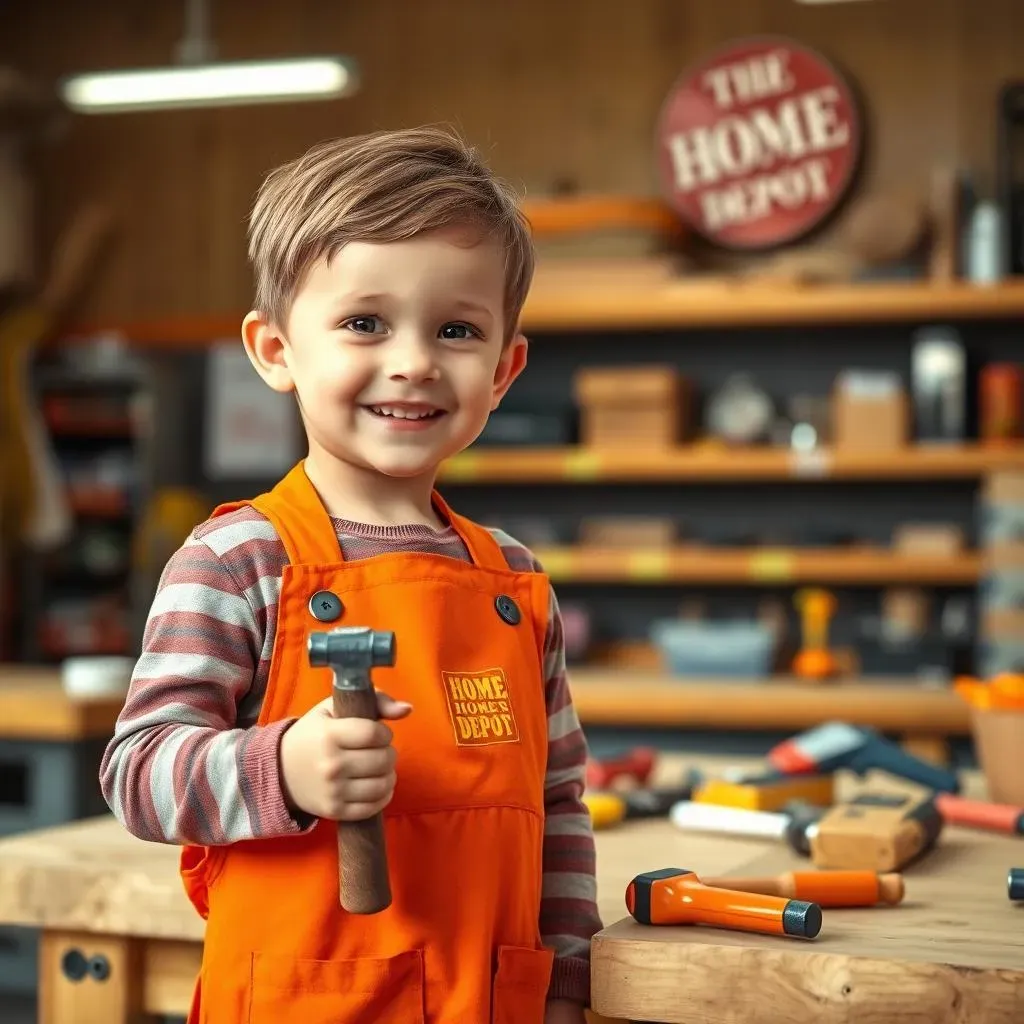Table of Contents
Ever walked through Home Depot and seen those tiny tool belts? They're not just cute; they're a sign of the fun that awaits at the Home Depot Kids Workshops! But before you rush in with your little one, you're probably wondering: "How old should kids be for Home Depot workshop?" It's a great question, and it's one that pops up for many parents. I've seen toddlers trying to wield hammers bigger than their heads, and older kids building like pros, so it's not always clear-cut. This article will break down the ideal age ranges, drawing from real experiences and a bit of trial and error, so you can decide when your child is ready to get their hands dirty (and maybe hammer a few things). We'll look at what makes a workshop successful for different ages and how to make the most of this awesome free activity. Get ready to find out when your kid can start their building journey!
Home Depot Kids Workshop: Age Recommendations
Home Depot Kids Workshop: Age Recommendations
The Toddler Zone (Ages 2-3): More Help Than Hammering
Okay, let's be real, the 2-3 year old crowd isn't exactly building masterpieces. These little ones are more about experiencing the sounds, the feel of the wood, and maybe, just maybe, tapping a nail with a LOT of help. It's less about the project and more about sensory exploration and having fun. Don't expect them to follow instructions or stay focused for long, but do expect adorable moments and some seriously cute attempts at hammering. I remember taking my nephew at this age; he was more interested in chewing on the wooden pieces than actually building. So, if you go in with the right expectations, you'll have a blast!
The key here is parental involvement. You'll be doing most of the work, guiding their hands, and making sure they don't try to eat the nails. Think of it as a fun, supervised playdate with a construction theme. It's a good way to introduce them to the idea of building and using tools, even if they're not quite ready to handle it all themselves. They'll love the noise, the bright colors, and the feeling of being "big helpers." Don't underestimate the value of those early exposures. It's all about planting a seed for future DIY enthusiasts.
Age Group | Focus | Parental Involvement | Expected Outcome |
|---|---|---|---|
2-3 years | Sensory exploration, basic motor skills | High | Introduction to tools and building |
4-6 years | Following simple instructions, basic building | Moderate | Simple project completion with help |
7+ years | Independent building, problem-solving | Low | Project completion with minimal help |
The Sweet Spot (Ages 4-6): Building with a Little Guidance
Now, we're talking! Kids aged 4-6 are usually more capable of following simple instructions and can start to grasp the basics of building. They’re still going to need some help, but they can participate more actively. They can hammer with a bit more accuracy, understand how to align pieces, and generally get more involved in the process. This age group will also enjoy the sense of accomplishment that comes with finishing a project, even if it's not perfect. It's fun to see them concentrating and trying their best to follow the steps.
This is the age where the Home Depot workshops start to become a real learning experience. They’re building their hand-eye coordination, learning to follow directions, and developing some problem-solving skills. It's also a great way to introduce them to the satisfaction of creating something with their own hands. Plus, it's a fantastic bonding experience for parents and kids. So, if you have a 4-6 year old, get ready to see some real progress and some pretty proud smiles. They might even start asking for their own tool sets!
RealWorld Experiences at Home Depot Workshops
RealWorld Experiences at Home Depot Workshops
Real-World Experiences at Home Depot Workshops
Okay, so we've talked about the age ranges, but what's it actually like at a Home Depot workshop? Well, let me tell you, it's a mixed bag of adorable chaos and surprisingly focused building. I've seen kids who are totally in their element, hammering away like they've been doing it for years, and others who are more interested in the free apron and stickers. One time, a little girl decided the wood was a perfect canvas for her marker art, which, while not exactly "building," was pretty creative. You’ll see some kids immediately grasp the concept, while others need a bit more encouragement or demonstration. Remember, it's not a competition, it's about having fun and learning something new.
The atmosphere is generally very supportive, with Home Depot employees always on hand to help out, and they're usually pretty good at wrangling the little ones. I've witnessed parents getting just as into it as their kids, which is always hilarious. Think of it as a free, low-pressure way to get your kids involved in something hands-on. And the best part? You get to take home whatever they build. It's a great way to create memories and maybe even spark a lifelong love of making things. One thing I have learned, is if you are planning to go, make sure to get there early, because the most popular projects always run out of supplies.
- The Early Bird Gets the Project: Popular projects can run out quickly. Get there early!
- Embrace the Mess: It's a hands-on activity. Prepare for some sawdust and paint smudges.
- Safety First: Make sure your child wears the provided safety glasses, especially when hammering.
- Patience is Key: Not every kid will be a building prodigy. It's all about the experience.
- Parental Participation: Be ready to get involved, especially with younger children.
Making the Most of the Home Depot Workshop Experience
Making the Most of the Home Depot Workshop Experience
Preparation is Key
So, you're all set to go to a Home Depot workshop? Awesome! But before you head out, a little prep can go a long way. First off, check the Home Depot website to see what project they're featuring for the month. This way, you can get your child excited about what they’ll be building. It's also a good idea to talk about the tools they might be using – hammers, screwdrivers, etc. – just so they have a basic idea of what to expect. I always find that if they know what's coming, they're less likely to be overwhelmed and more likely to jump right in. Think of it like getting ready for an adventure; the more prepared you are, the more fun you’ll have.
Another tip? Dress for mess! These workshops are hands-on, so chances are, you're going to encounter some sawdust, paint, or glue. Wear clothes that you don't mind getting a little dirty, and maybe even bring an old t-shirt to put over your child's clothes. It's also a good idea to bring a small bag to carry home their finished project and any extra bits and pieces. And, let's be honest, the excitement of the project might make them a little hungry, so pack a small snack and a drink to keep their energy levels up. A little bit of planning can make a big difference in your overall experience.
- Check the project in advance.
- Talk about the tools.
- Wear old clothes.
- Bring a bag.
- Pack a snack and drink.
During the Workshop: Engagement and Encouragement
Okay, you've arrived, and the workshop is in full swing. Now's the time to be your child's biggest cheerleader. Encourage them to participate as much as they can, even if they're a little hesitant at first. If they're having trouble with a step, offer gentle guidance, but let them do as much as possible on their own. It’s not about perfection; it’s about the process and the pride they feel when they complete something themselves. I've found that even the smallest bit of praise can make a big difference in their confidence. And, let's face it, it's also pretty fun to watch them concentrate and try their best.
Remember, every child is different, and some may need more help than others. It's okay if they need a little extra guidance or if they want to take a break. The goal here is to make it a positive and enjoyable experience. If you see your child getting frustrated, try breaking the task down into smaller steps or just take a breather and come back to it later. I also like to take lots of pictures and videos, not only to document their progress but also to show them how well they did when they’re done. It’s a great way to build their self-esteem and create lasting memories.
After the Workshop: Celebrating the Creation
The workshop is over, and your child is proudly holding their creation. Now what? Well, first off, make a big deal about it! Let them show off their project to everyone. Hang it up, put it on a shelf, or find a special place for it. This helps them understand that their work is valued and appreciated. It's also a great time to talk about what they learned and what they enjoyed about the experience. Ask them about their favorite part, what was challenging, and what they might want to build next. This helps reinforce the learning process and also sparks their creativity. I love seeing the sense of accomplishment on their faces when they realize they made something cool with their own hands.
Don't forget to use this experience as a springboard for other DIY activities at home. Maybe you can start a simple project together or encourage them to help out with small tasks around the house. It's amazing how much they can learn from these hands-on experiences. And who knows, maybe you'll discover a budding carpenter or engineer in your midst. The Home Depot workshops are not just about building a project; they are about building confidence, creativity, and a love of making things. And that, in my book, is something worth celebrating.
